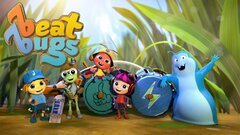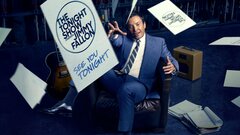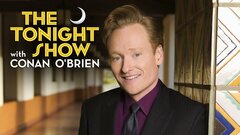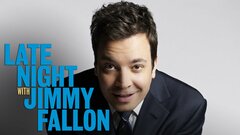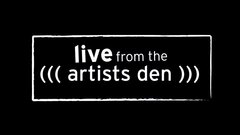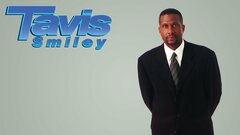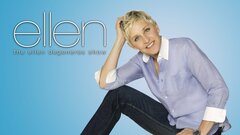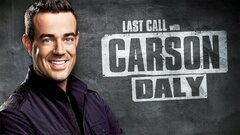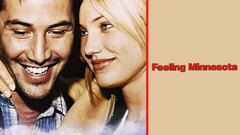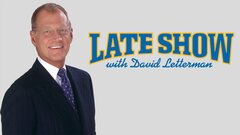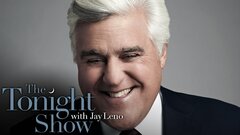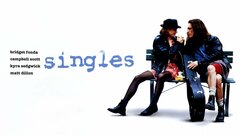One of the most powerful singers of the grunge movement in the early 1990s, Chris Cornell's fiery vocals helped to make Soundgarden one of music's biggest success stories. His stage presence - long haired, bare chested and brooding - suggested a revival of the '70s and '80s "rock god" persona adopted by many hard rock and metal acts, but Cornell proved a more versatile and thoughtful performer and songwriter than his predecessors.
In fact, he never quite meshed with Soundgarden's signature sound, a mix of punk volume and sludgy, Sabbath-style riffing, which eventually led to the group's dissolution in 1997. Cornell's initial solo effort found few takers, which spurred him to accept an offer to sing for Audioslave, a new group formed out of the ashes of Rage Against the Machine. The band generated three wildly popular records before Cornell left the act to return to his solo work, which gradually found an audience.
In 2010, he surprised many by reuniting with Soundgarden, which had formed the bulk of his music efforts when not recording as a solo performer. Whether alone or fronting his famous grunge group, Cornell remained one of the most formidable singers on the hard rock circuit. Chris Cornell was found dead in his dressing room at a Detroit casino after a performance on May 17, 2017 at the age of 52; the local medical examiner ruled his death a suicide the following day. As one of the defining rock stars of the 1990s, his passing was greeted with shock and mourning from peers and fans around the world.
Born Christopher John Boyle on July 20, 1964 in Seattle, WA, Chris Cornell was the son of pharmacist Ed Boyle and his wife, Karen Cornell, an accountant. Three of his five siblings also pursued music careers, each achieving some degree of success, but none at the level of international recognition Cornell would experience. A loner by nature, the adolescent Cornell found solace in rock-n-roll, listening obsessively to a trove of Beatles LPs abandoned in the basement of a former neighbor's home.
He began singing and drumming in the early 1980s with a Seattle-based cover group called The Shemps, which featured bassist Hiro Yamamoto among its number. When Yamamoto left the group, The Shemps recruited Kim Thayil as his replacement until the band decided to call it quits. In 1984, Cornell then reunited with Yamamoto, and brought Thayil along to their new group, which they called Soundgarden. The group's first recordings, which featured Scott Sundquist on drums, appeared on a compilation of Seattle rock bands called Deep Six (1986). Sundquist soon left the group, and was replaced by Matt Cameron.
That lineup was soon signed to the influential alternative label Sub Pop, which released two EPs in 1987 and 1988 shortly before the band signed to the Los Angeles-based punk label SST, which at one time had such legendary acts as Black Flag, the Minutemen and Hüsker Dü on its talent roster. Their full-length debut, Ultramega OK (1988), earned a Grammy nomination for Best Metal Performance, but Cornell was displeased with the record, stating that its producer, Drew Canuelette, pushed the sound away from their established droning, metallic groove, which hewed closer to classic acts like Black Sabbath, Led Zeppelin and the Stooges and formed the backbone of the "grunge" sound.
In 1990, Soundgarden signed with A&M Records, which released their sophomore album, Louder than Love, which broke onto the Billboard 200. During this period, the band lineup changed once again, with ex-Nirvana guitarist Jason Everman taking over bass for Yamamoto, who had left to complete his Master's degree, before being replaced by Ben Shepherd. The new arrangement released Badmotorfinger in 1991, which netted the band a second Grammy nomination for Best Metal Performance. Its popularity, along with Pearl Jam's Ten (1991) and Nirvana's Nevermind (1991), helped to put Seattle rock on the global map, and spearheaded the grunge movement in music, which replaced glam metal and pop as the dominant genres in popular music in favor of a metal/punk/classic rock hybrid which fell under the rubric of "alternative music."
Cornell's muscular, near-operatic voice, which echoed such heroic frontmen of the past as Robert Plant and Sabbath's Ronnie James Dio, also became the standard for rock singers. That same year, Cornell and Cameron teamed with members of Pearl Jam to form a side project, Temple of the Dog, which recorded a self-titled album that paid tribute to their mutual friend, Mother Love Bone singer Andrew Wood, who had died in 1990 from drug-related causes. The album failed to generate chart placement upon its release, but by the summer of 1992, when grunge popularity was in full swing, A&M reissued the record while promoting the song "Hunger Strike" as its lead single. Temple of the Dog soon rose to No. 5 on the Billboard charts, eventually selling over a million copies. Cornell would go on to collaborate with other artists during this period, penning songs for Alice Cooper and producing the Screaming Trees' Uncle Anesthesia in 1997.
Meanwhile, Soundgarden's own superstar status was cemented with their fourth album, Superunknown (1994), which debuted at the top of the Billboard album charts. Two of its singles, the psychedelic-tinged "Black Hole Sun" and "Spoonman," won Grammys for Best Hard Rock and Best Metal Performances, respectively, while the album itself reaped Soundgarden its third Grammy nod for Best Metal Album. But the band itself was fragmenting, due in part to clashes over creative direction between Thayil and Cornell, who had pushed for a departure from the band's established heavy sound. His wishes were answered in part by 1996's Down on the Upside, which alternated between hard rock and acoustic tracks. Fans were not pleased with the new Soundgarden, resulting in lower sales, despite a Grammy nomination for the lead single, "Pretty Noose." Following its release, Soundgarden would disband in April 1997.
Cornell launched his solo career the following year with Euphoria Morning (1998), which showed the influence of his friend, the late Jeff Buckley, in its focus on voice and melody over sonic force. The record was not a commercial success, despite a Grammy nomination for Best Male Vocal Performance at the 2000 Grammys. A track from the album called "Mission" would later show up in a remixed form on the soundtrack for "Mission: Impossible 2" (2000). That same year, he was approached by producer Rick Rubin in regard to Rage Against the Machine, which had remained together after the departure of its singer, Zack de la Rocha. Cornell soon joined Tom Morello, Brad Wilk and Tim Commerford as Audioslave, which released a self-titled album in 2002.
Produced by Rubin, the record reached multi-platinum status on the strength of brawny singles like "Cochise." However, the group's ability to capitalize on their popularity was soon hampered by Cornell's growing dependency on drugs and alcohol, which necessitated a stay in a rehab clinic in 2002. Following his release, Audioslave released their second album, Out of Exile, which landed at the top of the album charts upon its release. A third record, Revelations, moved the group towards a funk/R&B sound, but the band was unable to tour in support of the album due to solo commitments by Cornell and Morello. By 2007, Audioslave had fallen apart, sending the former Rage members into a reunion with De la Rocha while Cornell pursued his solo career.
His first return foray in this direction was "You Know My Name," the title song for the James Bond feature "Casino Royale" (2006), which netted him a Grammy nomination. The following year, his second solo album, Carry On (2007), broke into the Top 20 on the Billboard album charts. He toured extensively with Aerosmith during that year before launching his own world tour, which ran through 2009. At the conclusion of the lengthy global jaunt, Cornell released a third solo album, Scream , which featured an R&B sound and collaborations with rap producer Timbaland and Justin Timberlake. Though it received largely negative reviews from critics, Scream was Cornell's most successful solo effort, reaching No. 10 on the Billboard 200.
In 2010, Cornell reunited with Soundgarden to headline that year's Lollapalooza concert. A series of successful live appearances preceded the band's 2012 reunion album King Animal. During the same period, Cornell launched a successful run of acoustic live performances, which took him throughout the United States, South America and Australia for the majority of the year. In August of that year, Cornell also reteamed with Pearl Jam for a Temple of the Dog reunion at a festival in Wisconsin. Between Soundgarden tours and recording sessions, Cornell released his fourth solo album, the reflective Higher Truth, in 2015. The following year, Cornell reformed Temple of the Dog for a 25th anniversary tour that accompanied an expanded reissue of the group's sole album. On the evening of President Donald Trump's inauguration in January 2017, Audioslave reformed for a one-off set at an anti-Trump protest concert by Prophets of Rage, a rap-rock supergroup that included three members of Audioslave.
Chris Cornell died on May 17, 2017 in his dressing room at the MGM Casino in Detroit following a performance; his death was pronounced a suicide the following day. He was 52.







